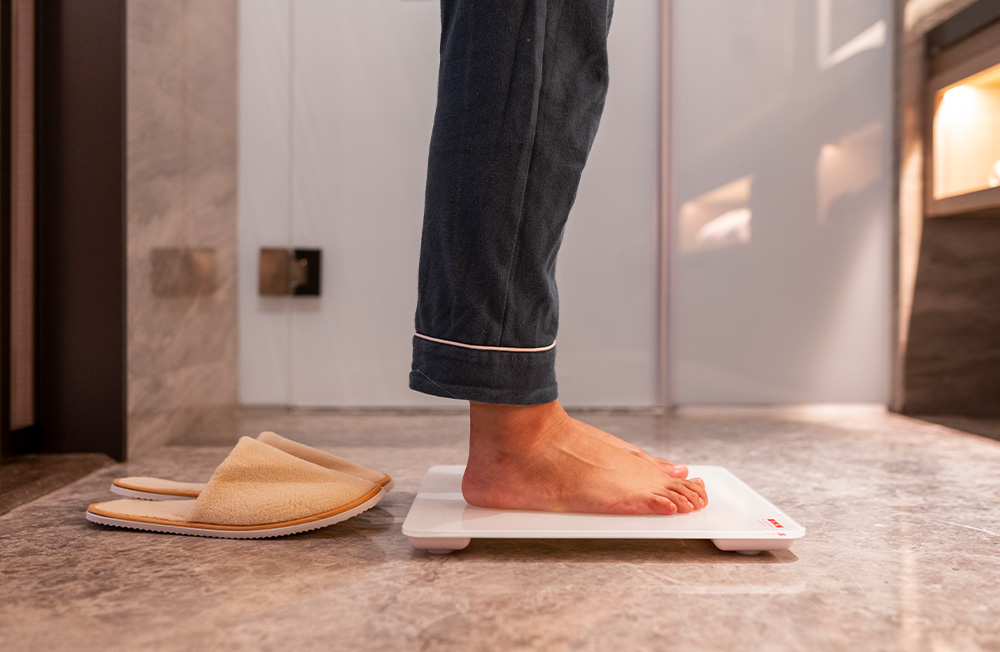The news cycle is full of stories about celebrities and wealthy housewives who have magically slimmed down with a new generation of incretin medications called semaglutide (Ozempic and Wegovy) and tirzepatide (Mounjaro). Tales of weekly injections that rival the results of bariatric surgery have made them a hot topic, but not all the attention has been positive. Here, experts separate fact from fiction about how these weight-management tools really work.
TRUE: Candidates need to be examined and diagnosed by a qualified physician and have thorough blood work done before starting on these injections.
“Physicians should do their best to verify that someone has an indication for these medicines,” says obesity and lipid specialist Dr. Spencer Nadolsky, who also serves as the medical director for Sequence, a telehealth provider that offers users access to these drugs. “This involves reviewing the patient’s history, blood work and vital signs.” Currently, the FDA-approved indications for most of these medications are for Type-2 diabetes. Wegovy, which is the same drug as Ozempic, is approved for weight management. Mounjaro, the latest to be FDA-approved for Type-2 diabetes, is said to be on the fast track to get approved in the chronic weight-management category.
In terms of major risks, patients should not use incretin medications if they have genetic disorders that affect the endocrine glands, or a personal or family history of medullary thyroid cancer, explains New York obesity specialist and endocrinologist Rocio Salas-Whalen, MD. In studies with rodents, Ozempic and medications that work similarly caused thyroid tumors and thyroid cancer. “If there’s a direct family history of these rare disorders, avoid taking these,” she says.
FALSE: The side effects will destroy your body.
Dr. Nadolsky says headlines concerning side effects have been largely exaggerated. “Most patients will have very mild side effects like nausea and constipation,” he says. “Some may have more moderate-to-severe nausea, but they are the exception and not the rule.” Other reported side effects include bloating, gas, diarrhea, abdominal pain and vomiting. More serious side effects, like pancreatitis and gallbladder issues, are rare but possible. Dr. Salas-Whalen adds that many of her patients say that reaching a healthier state is worth the mild discomfort.
TRUE: Patients with healthy BMIs should not be taking these medications.
Much has been reported on celebrities and influencers using these injections as a means of losing weight for “vanity weight loss,” and not to manage obesity or diabetes. Dr. Nadolsky stresses that physicians should not be prescribing them for that reason. “Hopefully, people are using them when they have an indication, which would be obesity or Type-2 diabetes,” he says. Those who are taking the drugs for weight management are typically required to have a BMI of 30 or higher; or a BMI of 27 and at least one obesity-related disease like high blood pressure, diabetes or high cholesterol.
Dr. Salas-Whalen notes that while this should be the rule, there are exceptions. “You can’t always tell from someone’s BMI or just by looking at them who can benefit from these tools,” she explains. “There are many underlying genetic factors for people who are predisposed to obesity. Maybe they’re at a point where they need to lose extra weight they gained during the pandemic, or they are on it to maintain their weight loss. This isn’t an obesity cure; it’s a means to control it.”
FALSE: Weight-loss users are taking medications away from Type-2 diabetics.
“There have been shortages,” explains Dr. Salas-Whalen. “However, the shortages began due to a manufacturing issue with the pens. Regardless, ‘weight-loss users taking medications away from Type-2 diabetics’ became the narrative. This shortage issue should be resolved and hopefully everyone will get their medication.” Dr. Salas-Whalen also notes that the public perception of who is deserving of the drugs and who is not only creates a divide. “There are currently 72 million people with obesity, versus 42 million with Type-2 diabetes. Many of the patients we are treating for obesity are Type-2 diabetics, prediabetic or have other contributing health concerns resolve once they’re on the medication. It’s not a matter of who needs it more; it’s a matter of supply catching up to demand.”
More than two-thirds of adults in the U.S. are considered overweight or obese.
Source: Healthline
TRUE: For some, results may rival those of gastric bypass surgery.
Incretin medications work by mimicking gut hormones we produce naturally that stimulate the release of insulin in response to a meal. They are used, along with diet and exercise, to help lower blood sugar in adults with Type-2 diabetes. During research trials, researchers noted that participants reported two major side effects: feeling fuller faster and delayed gastric emptying, meaning digested food moved slower from the stomach through to the intestines, which made recipients feel even more full. In a 68-week trial involving nearly 2,000 participants with a BMI of 27 or more, the group taking semaglutide (Ozempic) lost an average of 15 percent of their starting weight. A study published in The New England Journal of Medicine showed participants taking tirzepatide (Mounjaro) lost between 16 and 22.5 percent of their weight.
FALSE: You will regain double the amount of the weight you’ve lost once you stop taking it.
In a 2022 study funded by Novo Nordisk, the manufacturers of Ozempic, people who stopped taking semaglutide after 68 weeks of use regained two-thirds of their lost weight. “Most will regain much of the weight they lost, but not everyone will,” Dr. Nadolsky says. “These medicines are meant to be taken chronically because obesity is a chronic disease just like Type-2 diabetes. There may also be people who can come off of the medicine without having regained all the weight back.” For those who reach their weight-loss goals, the dose and frequency may be adjusted for long-term maintenance.
TRUE: “Ozempic face” is a myth.
The term “Ozempic face” became a buzzword used to describe facial aging, gauntness and skin sagging. However, the phrase is not accurate, as these concerns aren’t due to effects of the medication, but rather rapid weight loss. “No matter how it’s achieved, weight loss can cause subcutaneous fat loss all over the body,” says Dr. Nadolsky. “The effects of these medications are not specific to the face. It’s due to facial fat loss in general.”
FALSE: There are no studies that show the long-term effects of these new drugs.
“This is false,” Dr. Salas-Whalen emphatically says. “These medicines have been out since 2000, so for more than two decades. There are studies that do follow participants for several years and beyond that, we have a whole population of people who have been taking it for longer who have been consistently monitored.”

















